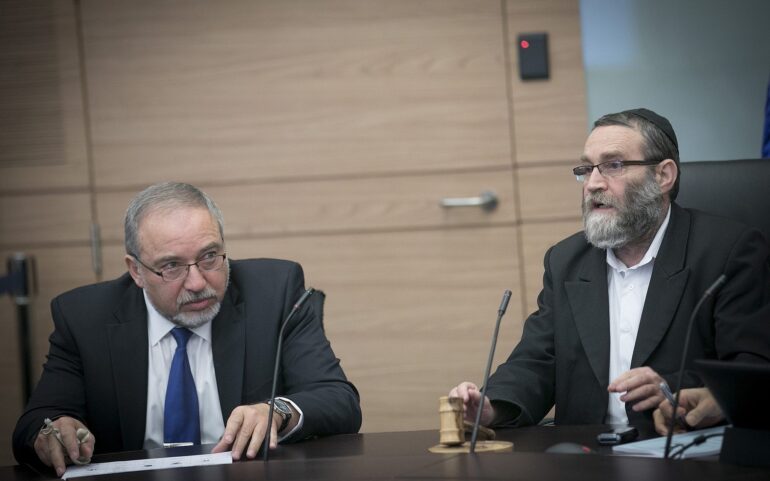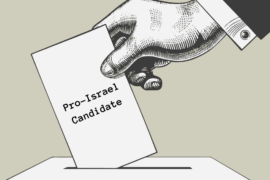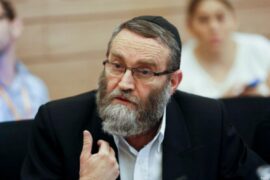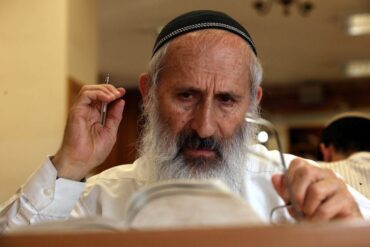Knesset Speaker Yuli Edelstein (Likud) dismissed rumors this week that early elections will be called over the government’s failure to reach a compromise between coalition members on a new ḥaredi draft law.
In an interview with Yisrael Hayom, the Knesset speaker expressed support for negotiations initiated by Prime Minister Binyamin Netanyahu (Likud), emphasizing his position that the dispute will not require early elections and could be easily resolved through negotiations.
“I don’t think it is a problem to solve the dispute over the draft law,” Edelstein said. “Netanyahu rightly said to the coalition partners, ‘Sit together and come up with a solution to the crisis.’ It’s not an unsolvable dilemma.”
“There is no political or substantive reason to hold the elections for the 20th Knesset early,” he continued.
“Obviously any decision on whether to make early elections will be entirely political.”
Israel’s Supreme Court struck down a 2015 amendment to the national draft law last year, arguing that open-ended draft exemptions for full-time yeshiva students constituted a form of “discrimination” as it offers special treatment to one specific sector of society.
The court gave the government one year to either pass a new draft bill into law or face the termination of the entire draft exemption program for yeshiva students.
Ḥaredi factions in the Likud-led coalition have meanwhile been lobbying the government to amend Israel’s basic laws that, like a constitution, underpin Israel’s legal system and are more difficult to repeal than regular laws.
Such an amendment would allow for new legislation to circumvent the Supreme Court’s ruling and preserve the current system of draft exemptions for full-time yeshiva students.
But Defense Minister Avigdor Liberman (Yisrael Beiteinu), who has for years publicly advocated for increased ḥaredi enlistment, is opposed to any efforts to circumvent the Supreme Court’s ruling.
Liberman has submitted an alternative bill, drawn up by defense ministry and army officials, that would maintain open-ended draft deferments but also impose mandatory quotas for enlistment in the ḥaredi community.
According to Lieberman’s bill, these quotas would rise annually and, if not met for three consecutive years, would lead to the automatic nullification of the entire deferment system.
The defense minister’s bill also called for financial sanctions to be imposed on institutions of Torah learning that do not meet enlistment quotas.
While popular among many citizens critical of the draft deferments enjoyed ḥaredi yeshiva students since the state’s establishment, Lieberman’s position should be understood as the political move that it is.
With his Yisrael Beiteinu party performing poorly in recent polls, Lieberman is desperate to set himself apart from political rivals, galvanize his political base of Israelis from the former Soviet Union and broaden his appeal to attract nationalist Yesh Atid voters, as well as Likud voters uncomfortable with what many perceive as Netanyahu’s constant placating of ḥaredi coalition partners.
Ḥaredi parties like Shas and United Torah Judaism are also playing a political game ahead of expected elections by prolonging the inevitable conscription of most yeshiva students. With its extraordinarily high birthrates and unemployment figures, there’s a limit to how long the ḥaredi sector will be able to sustain itself economically without entering Israel’s military and workforce.
The ḥaredi opposition to military service has for the most part already shifted from ideological opposition to participation in state institutions to a more practical concern that army life has a negative socio-cultural impact on young ḥaredi men. The fact that political figures and journalists championing the values of westernization often speak about “fixing” the ḥaredi community through acculturation in Israel’s army only serves to legitimize those concerns and strengthen extreme voices.
Given that the next generation of ḥaredi men will likely anyway be drafting into the army for socio-economic reasons, efforts by the Supreme Court, politicians and the mainstream media to coerce the community into military service should be understood as mere attempts to malign the community as part of a larger cultural conflict between those pushing the westernization of Israeli society and those loyal to the identity and traditions of the Jewish people.
It might be difficult to understand how the ḥaredi community has until now overlooked the mitzvah of serving in Israel’s army. But coercion from the state is only likely to further antagonize and alienate the community while strengthening the minority of voices ideologically opposed to military service. The best approach to increasing the ḥaredi draft would be to leave the community alone and open a wide door for them to enter when economic factors inevitably demand it.
If Defense Minister Lieberman is serious about increasing ḥaredi participation in the army, he should stop busying himself with populist political battles and instead strengthen and expand the existing military units created to accommodate the needs and values of ḥaredi soldiers.





